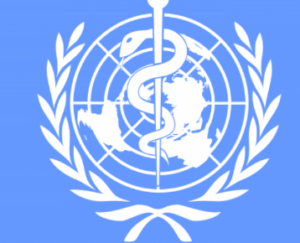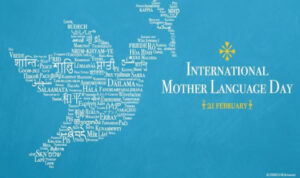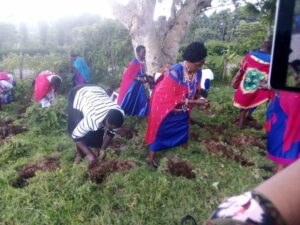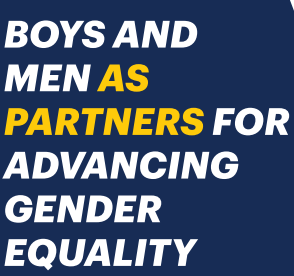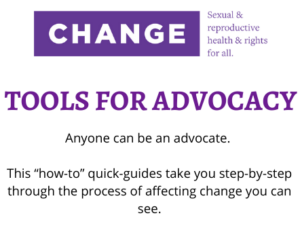In Summary
- According to Kenya’s 2009 census results, 2.8 per cent of Kenya’s population is above 65 years of age.
- Sixty per cent of orphans in Kenya are in the care of elderly people, Gacheru Maina, a HelpAge official, says.
- “In the next five years, it’s my hope that the government will have put in place more permanent measures to care for its senior citizens,” says Mr Maina.
Nobody knew where he was born. Nor did anybody know his name. But everybody knew he was well over 80 years old and that he lived at an abandoned dilapidated house in Kasarani.
That had been his abode for a while and time and again, those living within his vicinity would give him food, clothes to warm his body and some water to drink. He rarely spoke and his speech kept deteriorating.
One cold morning, a kind soul took him tea and found him shivering and numb but still clinging onto dear life. Sickness seemed to have taken a toll on him.
Sensing danger, the locals reported to Kasarani police station who then took him to Little Sisters for the Poor, Nyumba ya Wazee, Kasarani, where he was received by Head Sister, Brigit Mwilu. He was put under medication and care. Still, doctors gave him just two weeks to live.
A smile on their faces
Little by little his condition began to stabilise, his shivering diminished and his cold stares at the ceiling stopped. Three months on, they realised the stroke he had suffered when he was out in the cold had eaten his vocal cords almost to a point of malignancy. And since he couldn’t tell his name, they had to give him one, which his records and files, would be put under.
Sarah Njeri, a cleaner who used to clean his room, give him food and change his diapers suggested he be called Baraka — Blessing — and so he acquired a new name.
“On balance, they seemed to have some mutual yet silent fondness for each other”, Sister Mwilu says.
Seven months later, Baraka would put a smile on their faces. He could now murmur; then a bit of stuttering, and finally he spoke! He first remembered John and after some time, he completed his name: John Ngugi.
Chat all day with age mates
When asked about his story, he would slowly drift back to his old solitude. Occasionally though, he would be affable and chat all day long with his age mates, who liked him a big deal for he never picked up a quarrel. They sympathised with him too — ironically — oblivious of their own situation.
Judy Wambui wa Njoroge, 76, says she has lived at Nyumba ya Wazee for 20 years. She speaks impeccable English. Judy recalls her experiences with Baraka.
“I would sit with him outside there,” she says, pointing out at a lawn, “and enjoy the richness of his silence. He never talked much; he never rushed either, and I didn’t push him, but when he spoke, he echoed nuggets and nuggets of wisdom.”
He succumbed to stroke last November while in sleep after spending two years at the home. A simple requiem Mass was held for him the following day before he was laid to rest at Lang’ata Cemetery, escorted by a handful of sisters and staff.
His spirit didn’t depart to Lang’ata though. It still strengthens the sisters’ resolve towards the course of the poor, perhaps with more verve now. His spirit lives on in their hearts and in the minds of Sister Brigit, Sarah Njeri and Judy. Because of him, other seniors have cause to smile.
Deplorable life
According to Kenya’s 2009 census results, 2.8 per cent of Kenya’s population is above 65 years of age. Unlike Baraka, who was blessed with a roof over his head, company and an opportunity to pursue some pastime, most of the elderly can only dream of such luxury.
“They are living in misery, dying of loneliness and being forced by circumstance to raise their grandchildren, whose parents died from Aids, road accidents and other ills,” Regional Communication and Information Coordinator for HelpAge International Gacheru Maina says.
The international NGO champions senior citizen’s rights.

“Elderly people in Kenya are living a deplorable life,” Mr Maina says. “If it is not in poverty, it is seclusion and depression from their children in inheritance wrangles”.
Sixty per cent of orphans in Kenya are in the care of elderly people, the HelpAge official says.
Statistics aside, somewhere in Kenya, one old woman is the breadwinner for her three grandchildren, — whose parents went to the city and forgot all about them. Another is responsible of several grandchildren orphaned by Aids.
And it’s not just secondary responsibility; it’s looking after themselves that is proving a tad difficult. Deprived of strength, in poor health and most likely with little or no pension, many are living from hand to mouth.
Nothing to keep them busy
For the financially able, they have no one to talk to and nothing to keep them busy. They sleep from 6pm to 6am and then sleep again from 6am to 6pm. No… they don’t sleep, they spend all the time in bed, thinking, getting stressed up and depressed.
Then silence and solitude starts playing tricks on their minds. The dullness of the roof tires their eyes. Slowly by slowly, death beckons and takes away one generation after another. They die in misery and life continues.
But finally, there is light at the end of the tunnel. Things will change if renewed efforts by a number of independent groups succeed. One, Little Sisters of The Poor, Nyumba ya Wazee, has two centres in Kenya, in Nairobi and Mombasa.
While it’s not new, Sister Brigit says they are now more conscious than ever before of the plight of the old. “We have already reviewed our admission terms and also renewed our vigour to seek sponsorship and funding” she says.
“Anyone elderly, poor or in desperation, is welcome to Nyumba ya Wazee” she says, though subject to background scrutiny of individual and other factors such as availability of accommodation.
After admission, the person is integrated and given orientation on their new way of life and also asked to choose a duty — subject to their will and ability.
“Some are receptionists, others work in the kitchen peeling potatoes and chopping vegetables, kneading flour, and rinsing dishes, as others man our gates, among other duties”.
Thanks to Safaricom Foundation, they now have a fully-equipped gym where those who are not sick or not willing to do duties go to keep themselves fit. A physiotherapist is always there to lend them his ear.
He gently advises them to do push-ups and press-ups, how to do physical stretches, how to run on the treadmill, and ride the stationary bike. He also does group aerobics sessions with them.
Sponsors
Others keep off exercises, preferring to pore through acres and acres of newspaper pages.
“Newspaper — especially Taifa Leo — is priceless here,” says Sister Brigit, laughing.
An elderly woman walks in during our interview, fondly calls Sr Brigit ‘Mum’, and asks for yesterday’s Daily Nation. Unfortunately, it is not available and this maker her sad.
I bite my tongue as to why I didn’t bring the day’s newspaper with me, but the old lady is nonetheless grateful — and flashes a radiant smile — when I find an old copy for her from my laptop bag.
It turns out that Monday editions have become quite popular with them, since they feel a sense of affinity with “The blast from past stories”. And so she appreciated the July 15, 2013 copy.
Once in a while and when they get sponsors, they take them for outings to spend a day of fun. “Once, we were even lucky to get sponsored to Mombasa for a whole week”.
Sr Brigit says that such outings are for all, except the few who may be sick, or unwilling to travel for one reason or another.
Challenge discrimination
HelpAge International is another independent group that prides itself in advocacy for elderly rights. On its website, it describes its work as “helping older people claim their rights, challenge discrimination and overcome poverty, so that they can lead dignified, secure and healthy lives”.
Its more than 30 years’ rich history stretching to all parts of the world notwithstanding, it is its entry to Kenya that has had the biggest impact on Kenya’s senior citizens.
“We do advocacy, policy-influencing and also lobby the government on matters old age,” Mr Maina says. “Apart from this, we also do proposals for funding of different elderly people and engage in various projects across diverse counties”.
Their most recent one in rural Thika was a success.
“Big Lottery — one of our funders from the UK — provided finances that we extended to the desolate elderly living in rural Thika”, he says, adding that through flat-rate loans, most of them are now proud owners of thriving businesses.
“They now get a source of income and also something to keep them busy. Further, we believe in use of social protection in alleviating terminal illnesses and their consequences, edging out poverty and ensuring the aged are living decently.
“This is what we are and will be doing across Kenya in North Eastern, Tana River, Turkana and a host of other places”, Mr Maina says.
A paradise in Naivasha
For Apostle John Kagai Kinuthia, his passion for the aged is a divine calling. His Paradise Centre for the elderly, located in Naivasha, accommodates the needy and homeless elderly people over 60 years in the society within Naivasha region and from around the country.
“The least noticed of the destitute in Kenya are the elderly,” he laments.
“Millions of them are trapped in misery through a combination of low income and poor health”.
Since 2006 when he got the calling, Mr Kagai says he has been visiting the elderly, and the condition they live in is appalling.
“They have problems. They are forgotten. And health is failing them,” he says. He often goes around giving food to the elderly not housed in his paradise but in dire need of aid.
Staggering expenditure
On his website, Mr Kagai writes: “ …The steady elongation of life expectancy and declining birth rates are inexorably taking us towards a Kenya where there will be such a large number of aged persons; the poverty alleviation programme, which aims to pay even a modest subsidy would require a staggering expenditure much beyond the capacity of the government…”
Mr Maina concurs. Acknowledging that the intention of the government was noble when it set up the poverty alleviation programme — which is known as cash transfer — he, however, laments that there are still major loopholes in the scheme.
The transfer of the programme from the Ministry of Gender to the newly-structured Labour docket has also slowed things, according to him.
June 15 is a day Mr Maina holds dear. It is World Elder Abuse Awareness Day.
“First, celebrating that UN has officially added the day to its annual calendar and secondly, we have [previously] successfully facilitated a meeting between the aged and policymakers,” he said.
He recalls meeting Supreme Court Judge Willy Mutunga (2011-2016), who promised to support them and speed up elders’ cases on land, inheritance and others cases that are pending in courts.
The then Attorney General, Prof Githu Muigai, urged them to hire a consultant on the new constitution, who would take them through clauses that discuss matters elderly. Dr Oburu Oginga met advised them to remain financially conscious despite old age.
Mr Maina says that funding is their biggest challenge, adding that giving poor children priority in matters aids as compared to the ageing, is also a hindrance.
“The funding we get from UK-Age, Big Lottery and Norwegian Development Corporation, among others, is very little compared to our aspirations.”
Begging for aid
This is a challenge to Nyumba ya Wazee too, of which Sr Brigit laments. They don’t have any official or corporate funders and have to go around Nairobi begging for aid for the sake of the ageing. Luckily enough, former president Mwai Kibaki donated a 14-seater van to Nyumba ya Wazee, which is used for such errands.
“Industrial Area people are now tired of us”, she says jokingly.
“We frequently go there to ask people in factories for their edible/consumable by-products and anything else they might have”.
The nuns also visit markets such as Githurai, Toi and Marikiti to seek help.
Mr Kagai of Naivasha’s Paradise Centre does not also have any steady source of funding, and pleads to well-wishers and philanthropists to prop his agenda.
“I request those who can help in whatever capacity not to hesitate doing so”.
Permanent measures
If this happened, he would realise the big dreams he has for Kenya’s elderly. “I want to build a place for them where they won’t sit idly and die of loneliness,” he says. Those who can graze will do so, those who used to teach can continue teaching.
The future is bright also in Mr Maina’s eyes. “In the next five years, it’s my hope that the government will have put in place more permanent measures to care for its senior citizens.”
His biggest joy is the International Convention for Older People that will be hosted by UN soon. He hopes better plans for the elderly in the country will top the agenda of the meeting.[/vc_column_text][/vc_column][/vc_row]


